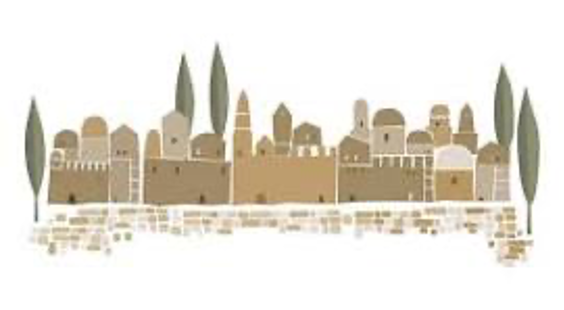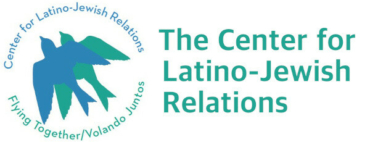6-6-24 Bilingual Torah Commentary / Comentario Bilingüe

יום ירושלים
Jerusalem Day
Día de Jerusalén
שאלו שלום ירושלים
Pray for the peace of Jerusalem
Orad por la paz de Jerusalén
This week we begin the fourth book of the Bible, “Sefer BaMidbar.” Additionally, on Tuesday night, June 11th, we begin our celebration of the holiday of Shavuot, known in English as Pentecost (but not to be confused with the Christian holiday with the same name that takes place on the seventh Sunday after Easter).
The English translation of Sefer BaMidbar is the “Book of Numbers.” We derive the English name from the fact that its first sections deal with the national census, the statistics that come from this census and the information provided by the census. The English title, however, does not reflect the book’s profound wisdom. This fourth Biblical book is much more than a mere book of statistics and numbers, but rather it is a journey into the Jewish people’s soul.
The book’s Hebrew name, BaMidbar, means “In the desert/wilderness” and it and reflects the tension between wilderness life and urban life as it unfolds its drama far from civilization. This tension is lost to the non-Hebrew reader. Because of Hebrew’s unique way of combining letters with vowels, words can have multiple layers of meaning. For example, if we change the vowels of letters that compose the word for desert (MiDBaR: mem-dalet-bet-raysh), we then read these same letters connote the notion of “speaking/speak.” That is to say we read the title as “the Book of Speaking” instead of “The Book of the Desert.” How come? Is this a chance play-on-words or does Hebrew connect the act of speaking with the wilderness? Is the text teaching us that words matter and that violence begins with words and terminates in physical acts?
The text teaches us that the “desert generation” was a generation of complainers. Like so many people on today’s college campuses, they were people who reacted emotionally and often without thought. The opposite of speaking is “hearing/listening to the other person. In Hebrew the root SH.M.Ayin means to understand through listening. Reading BaMiDBar, we have the sense that these forty years of relative solitude, were necessary for the Children of Israel to learn to listen.
In the wilderness, we had the opportunity to listen to both our inner personal and collective voices. It is in the desert that we created our own unique national culture. Thus, the “Ten Commandments” and the idea of constitutional law, both celebrated during Shavuoth, were born in territory that belonged to no one.
Sefer BaMidbar is about how we struggled to become G-d’s partners. It is in the emptiness of the desert that we learned not to speak empty words but to listen both to the spoken word and to the silence. This is also a book of careful balancing, showing us the need to create an equilibrium between details and ideas and between theory and practice. Perhaps Sefer BaMidbar’s overriding lesson is that although each person and culture is unique, greatness is marked by the ability to translate the unique into the universal. In these days of intense hatred Sefer BaMidbar, the Wilderness Book, reminds us of the need to listen with respect and to learn from each other.
This fourth book of the Bible brings the wisdom of the desert into urban life. It offers for those who live in a world in which the gracefulness of solitude has become a lost art, a glimpse into the wisdom of the desert. This book teaches us that successful living comes by a combination of the private with the public, and the social with the personal.
This fourth Biblical book reminds us, who live in a time when words have been twisted to such an extent that they lack meaning, of the importance of those famous Ten Utterances/Statements known to many as the Ten Commandments. Reading the text and celebrating Shavuot we come to understand that G-d blessed us with not just words but also actions. Ideas expressed in words that formed the basis of much of Western thought.
Esta semana empezamos el cuarto libro de la Biblia, Séfer baMidbar. También en martes al anochecer, 11 de junio, comenzamos nuestra celebración de la fiesta religiosa de Shavuot, conocido en español como Pentecostés.
La traducción en castellano de Séfer BaMidbar es el Libro de los Números. Su título en castellano no es una buena traducción. Derivamos el nombre del libro inglés porque sus primeras secciones tratan del censo nacional y las estadísticas que rendimos de esta información. Este libro es mucho más que un libro de estadísticas y números sino una recorrida que nos introduce al alma de nuestro pueblo.
El nombre en hebreo es mucho más expansivo. Significa en la versión original “en el desierto o yermo” y reflete el hecho que el argumento del libro tiene lugar lejos de la civilización. Si cambiamos los vocales que componen la palabra por ‘desierto’ (mem-dalet-bet-resh), entonces leemos estas mismas letras en hebreo como mi-da-ber o ‘hablando’. Es decir que usamos las mismas letras con vocales diferentes para expresar la palabra desierto y hablar. ¿Por qué? ¿Qué es la relación entre el desierto y el acto de hablar? ¿Qué lección nos enseña el texto? ¿Nos enseña la importancia de nuestras palabras y que la violencia comienza con palabras y termina en actos físicos?
El texto nos informa que la generación del desierto estaba compuesta de quejumbrosos. Como muchos en los campos universitarios de hoy día eran personas que reaccionaron emocionalmente y muchas veces sin pensamientos. Hablaron y no escucharon. Es por eso por lo que la raíz verbal hebreo, sin-mem-ayin, significa “comprender por escuchar”. Al leer BaMidbar tenemos la sensación de que los 40 años de soledad eran necesarios para aprender a escuchar y al aprender esta lección estábamos listos para transformarnos en una nación.
Estando solos en el desierto teníamos la oportunidad de escuchar nuestra voz interior y oír la voz que nos habla en forma individual y grupal. En el desierto creamos nuestra cultura única y nacional. Por eso celebramos la entrega de los Diez Mandamientos y la idea de la ley constitucional en la fiesta religiosa del desierto, Shavuot.
En este cuarto libro de la Biblia enfrentamos los sonidos del silencio y la necesidad de hacernos en los socios de D-os en la construcción nacional por medio de relacionar lo cotidiano con el alma del pueblo. En el vacío del desierto nos enteramos de abstenernos de usar palabras vacías y escuchar lo hablado y lo no hablado.
En Séfer BaMidbar experimentamos el equilibrio cuidadoso entre los detalles e ideas, entre lo teórico y lo práctico. Es el antídoto a la arrogancia. Por eso el libro nos enseña que aunque cada persona y cultura es única, la grandeza nos llega cuando podemos transformar lo único en lo universal. En estos días de tanto odio, este libro nos recuerda de la necesidad de escuchar el otro y aprender cada uno del otro.
En este libro los que viven en una ciudad aprenden de la sabiduría del desierto. Les ofrece una oportunidad de comprender la gracia de la solidad y la importancia de la introspección personal. Nos enseña que una vida exitosa empieza con el equilibro de lo personal con lo público.
Nosotros, que vivemos en una era de palabras tergiversadas al punto que les falta significado necesitamos recordar en esta fiesta de Shavuot la importancia del regalo de Las Diez Unidades de Habla, conocidas a muchos como Los Diez Mandamientos, eran las palabras que cambiaron el mundo.
YouTubes for the week
YouTubes para la semana
Celebrating Jerusalem for Yom Yerushalayim
Celebrando Jerusalén e Iom Yirushalayim
Lach Yerushalayim:
Yerushalayim sheba’lev:
Meal Pisgat Har Ha’Tzofim:
Yerushalayim:
Yerusahalayim shel Zahav:
Please pray for Israel’s soldiers and the safe return of all of the remaining hostages.
Oren por los soldados de Israel y por el regreso sano y salvo de todos los rehenes.
